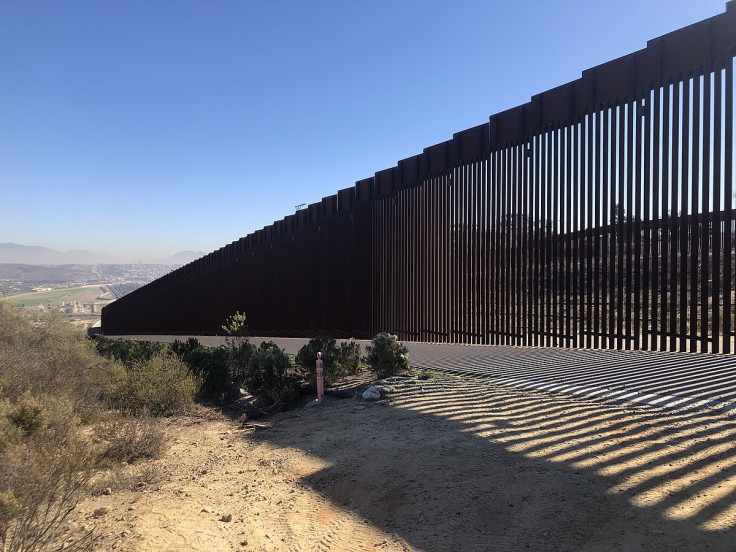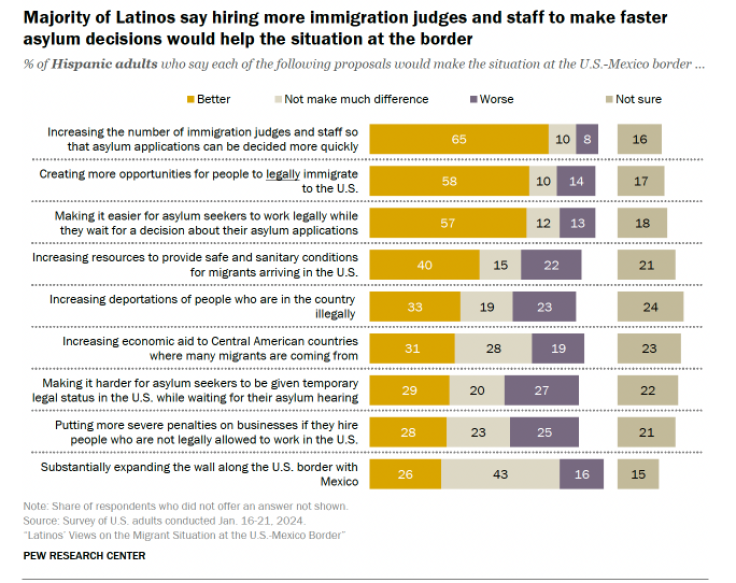
A large majority of Latinos in the U.S. say the surge in migrants reaching the country's southern border is either a crisis or a major problem and that the government is doing a poor job at dealing with it, according to a new study by the Pew Research Center.
Concretely, 38% of Latino respondents said the situation at the border is a crisis, the same amount calling it a major problem. It's a slight lower figure than non-Latino respondents (47% saying it's a crisis and 31% a major problem) but a large majority overall.
As for the government's way of handling it, 38% said it was doing a very bad job and 36% it was somewhat bad (74% overall). This compares with 47% of non-Latinos who said the Biden administration was doing a very bad job and 34% saying it was somewhat bad (81% overall).
Asked about potential changes to immigration policies that could help address the situation, Latinos had diverse opinions. Most were favorable to "increasing the number of immigration judges and staff so that asylum applications can be decided more quickly" (65%), "creating more opportunities for people to legally immigrate to the U.S. (58%) and "make it easier for asylum seekers to work legally while they wait for a decision about their asylum applications (57%).
They gave more mixed answers to other proposals, among them "increasing resources to provide safe and sanitary conditions for migrants arriving in the U.S.," with 40% saying it would make it better, 15% saying it wouldn't make much of a difference and 22% that it would make it worse.
A third of Latinos said they favored increasing deportations of people who are in the country illegally, while 19% said it wouldn't make much of a difference and 23% that it would make it worse.

The least favored option was expanding the wall along the U.S. border with Mexico: only about a quarter of Latino respondents said it would make the situation better, 43% said it wouldn't make much of a difference and 16% said it would make it worse.
Pew Research Center also highlighted that Latinos "are split on whether making it harder for asylum seekers to be granted temporary legal status in the U.S. while they wait for their asylum hearing will make the situation better (29%) or make it worse (27%)."
As for the reasons leading migrants to make the journey to the U.S., most Latinos agreed that economic prospects play a major role. 77% said bad economic conditions in their home countries were a major reason, while 16% said it was a minor one and 6% that it was not a reason. Moreover, 75% said that good economic opportunities in the U.S. were also a major reason, with 18% saying it was a minor one.
More than two thirds also cited violence in their home countries (68% saying it was a major reason and 25% that it was a minor one. Non Latinos' answers were quite similar to those given by Latinos.
Party affiliation was not a factor that contributed to change some the answers, as "Democrats and Democratic leaners are just as likely as Republicans and Republican leaners to cite economic conditions in the U.S. and in migrants' home countries as major reasons for the migrant situation at the border."
However, it was the case with others. "74% of Hispanic Democrats say violence in migrants' home countries is a major reason for the migrant border situation, compared with 50% of Hispanic Republicans who cite it as a major reason."
"67% of Hispanic Republicans say migrants believing that U.S. immigration policies will make it easy to stay in the country once they arrive is a major reason, while 44% of Hispanic Democrats say the same."
© 2024 Latin Times. All rights reserved. Do not reproduce without permission.







